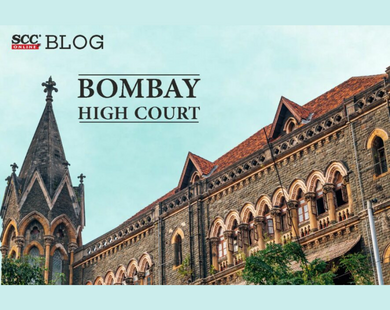Bombay High Court: In a petition filed by Gammon Engineers & Contractors Pvt. Ltd. under Section 34 of the Arbitration Act, 1996 challenging an award passed by the Facilitation Council for Arbitration constituted under the Micro, Small and Medium Enterprises Development Act, 2006 (MSMED Act) on grounds of territorial jurisdiction to entertain the petition and being barred by the period of limitation, Manish Pitale, J., sets aside the impugned award being against the fundamental policy of Indian Law.
Sahay Industries (Respondent), claiming to be an enterprise covered under the provisions of the MSMED Act, entered into a contract containing an arbitration clause, with the Petitioner for the supply of fabricated metal in the year 2010. However, due to certain disputes, the Respondent approached the Facilitation Council under Section 18 of the MSMED Act for the resolution of disputes by Arbitration.
The Facilitation Council issued a notice to the Petitioner, pursuant to which the petitioner filed a reply raising objections regarding limitation as the claim was filed beyond the period of three years, in the year 2019. The Facilitation Council directed the Petitioner to pay an amount of Rs. 07,02,333/- with compound interest without acknowledging the ground of limitation. Aggrieved by this, the present petition was filed.
On the submission made by the respondent that Court does not have territorial jurisdiction to entertain the challenge against the impugned award, the Court relied on Gujarat State Civil Supplies Corpn. Ltd. v. Mahakali Foods (P) Ltd., 2022 SCC OnLine SC 1492 and noted that once Arbitration is initiated under Section 18 of the MSMED Act, the provisions of the said Act would have an overriding effect on the provisions of the Arbitration Act, as the Arbitration Act has to be treated as the general law and MSMED Act as the Special Law and that the Special law must prevail over the general law
The Court noted that under the provisions of the MSMED Act, there is no avenue of challenge or appeal provided to the aggrieved party, and Section 18 (3) of the MSMED Act, specifically provides that when the Facilitation Council takes up the dispute for Arbitration, the provisions of the Arbitration Act shall apply to the dispute, as if the Arbitration was in pursuance of an Arbitration Agreement under Section 7(1) of the Arbitration Act.
The Court further noted that the Court having jurisdiction to entertain such a challenge is the Court where the place of Arbitration was agreed between the parties and if parties agreed for Arbitration by an agreed procedure of constituting an Arbitral Tribunal, the same would stand obliterated by operation Section 18 of the MSMED Act.
However, it is important to note that once the Arbitration Award is pronounced, and there is an exclusionary clause of jurisdiction agreed between the parties, thereby agreeing upon the jurisdiction of only one Court, in exclusion to the others, the challenge initiated by the aggrieved party under the Arbitration Act, even against an award passed by the Facilitation Council under the MSMED Act, will lie only before the Court upon which the parties agreed to place exclusive jurisdiction.
Placing reliance on Indian Oil Corporation Ltd. v. Fepl Engineering (P) Ltd, 2019 SCC OnLine Del 10265, the Court observed that it is that place which is covered under the exclusive jurisdiction of the Court agreed between the parties, which continues to be the place of Arbitration, thereby determining the Court that shall have territorial jurisdiction to entertain a petition under Section 34 of the Arbitration Act, to challenge the award passed by the Facilitation Council under the MSMED Act.
The Court concluded that in the present case, the parties agreed that the Courts at Mumbai shall have exclusive jurisdiction. Therefore, the place of Arbitration continues to be Mumbai, although the venue of Arbitration was Madurai, where the Facilitation Council under the MSMED Act passed the impugned award. Thus, there is no substance in the preliminary objection regarding territorial jurisdiction of this Court to entertain the present petition.
On the next issue pertaining to limitation, that the provisions of the Limitation Act do not apply at all to the Arbitration proceedings initiated under the provisions of the MSMED Act, the Court stated that the Respondent claimed payment of dues from the Petitioner for the period between 2010 and 2014. The last payment was made in November 2015, indicating that the claim petition before the Facilitation Council ought to have been filed by the Respondent within three years from November 2015. Thus, the claim petition was filed beyond the period of limitation of three years.
Thus, the Court held that the Facilitation Council under the MSMED Act was unsustainable, and the Petitioner has made a ground under Section 34(2)(b)(ii) of the Arbitration Act, to demonstrate that the impugned award is against the fundamental policy of Indian Law and a time-barred claim could not have been entertained by the Facilitation Council, thereby indicating that the impugned award deserves interference.
[Gammon Engineers and Contractors Pvt. Ltd. v. Sahay Industries, Commercial Arbitration Petition No. 9936 of 2021, decided on 27-01-2023]
Advocates who appeared in this case :
Mr. P.G. Sabnis, for the Petitioner.
Mr. Devashish Godbole i/by Mr. Prasad Nagargoje, for Respondent
*Arunima Bose, Editorial Assistant has reported this brief.







